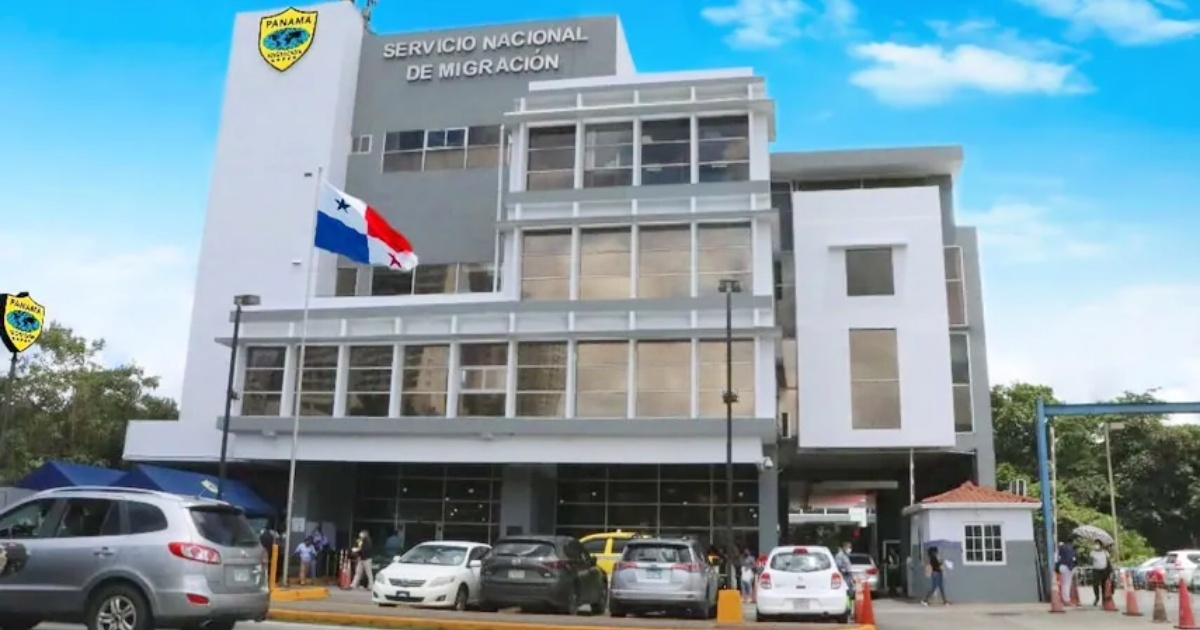
The National Migration Service (SNM) of Panama reported this Monday on the new requirements for Cubans to be able to apply for a tourist visa and also for transit, after the suspension last week of online applications, citing "vulnerabilities" detected in the system.
In the case of the tourist visa, the main requirement - until the website is restored - involves submitting the documentation physically through the appointment of a lawyer in Panama, as detailed by the National Migration Service on its X profile.
The request can only be submitted by a legal representative. The applicant must grant power of attorney to a suitable attorney, properly apostilled. The power of attorney or authorization must clearly specify the reasons why the stamped visa is being requested.
In addition, a simple photocopy of the general pages of the passport must be attached.
A simple copy of the attorney's ID and professional license must also be included.
The requests must be submitted at the SNM headquarters, specifically at the Correspondence department.
It is essential to include an email address in the provided information, as the response will be sent through that way.
The Panamanian immigration authorities reiterated that "the website where stamped visas for tourists from the Republic of Cuba are requested is currently under review."
This time they did not specify, as in a previous statement, that the online service will be restored by the end of July.
In the case of applying for a transit visa, the requirements are: submission of the transit visa application form, a simple copy of the applicant's passport, flight reservation, a simple copy of the applicant's identification and suitability, and submission of the documents through a legal representative at the Correspondence window in the SNM.
Last Friday, the National Migration Service of Panama had announced the temporary suspension of the online processing for granting Stamped Visas to foreign nationals of Cuban nationality, citing "vulnerabilities" in the computer system being used.
Roger Mojica, the new director of the SNM, stated that the institution is committed to transparency in these procedures, and emphasized the importance of complying with the country's immigration laws, "always respecting human rights."
Mandatory transit visa for Cubans
In January of this year, the government of Panama had extended until July 31 of this year the mandatory transit visa requirement for Cuban travelers making a stopover in that country, which came into effect in March 2022.
In the decree promulgated in December 2022, Panamanian authorities established that only the visa holder is authorized to stay in the international transit area of the airport for 24 hours.
At that time, the decision was made "due to the increase in cases of Cuban passengers admitted or rejected by the destination country, which has been causing inconveniences at the migration control posts in Panamanian territory."
Since it came into effect, those exempt from a transit visa include, among others, those traveling to Cuba; who have a valid tourist visa or residence in the Republic of Panama and have a valid residence or multiple visa, previously used in the territory of the issuing State, with a validity of no less than six months at the time of transit, duly granted by a list of countries that include the USA and the European community.
Panama is one of the destinations that Cubans traditionally used to migrate to the United States through the irregular route of Central America.
At the beginning of May of this year, the president-elect of Panama, José Raúl Mulino, promised to close the border crossing at the Darién jungle with Colombia as a measure to control the migration crisis.
Last week, the National Border Service (Senafront) of the Republic of Panama announced the closure of at least three border crossings commonly used by migrants passing through the dangerous Darien jungle on their way to Colombia and ultimately to the U.S.
In addition to being a transit route to the United States, it is important to highlight that the Colón Free Zone continues to be a tourist and commercial hub for Cubans, with over 15,042 visitors in 2023.
What do you think?
COMMENTFiled under: